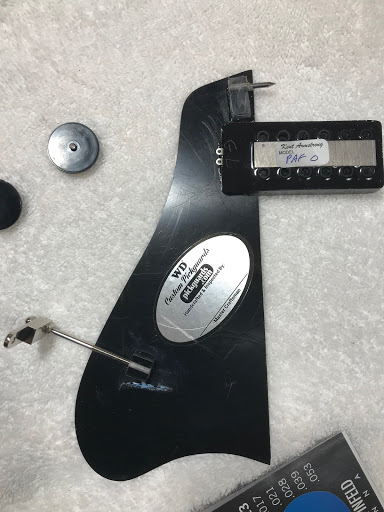The Jolly Boat
Sometimes you have a vision for something... you can imagine it in your head and, in part through meticulous planning, and in part through fantasy, the vision can become increasingly concrete until this vision, which up until now has been entirely in one's mind, seems completely feasible to manifest in the real physical world.

I think we conceptualize athleticism in this way, and occasionally I've had the opportunity to experience those moments of purity. I used to be a wrestler, and the countless hours of practicing on the mat would culminate in a few short minutes in a match, and when things aligned perfectly, it was almost instinctual, the set up and take down. Everything, every molecule on this planet moved in complementary degrees so that there was a gracefulness to the intentionality and everything happened as it should.
But other times, things don't quite happen as one imagines. I call this the Whangdoodle effect. When I was in grade school we read The Last of the Really Great Whangdoodles. I don't really remember anything of substance from the book other than there was a boat called the Jolly Boat. For my book project, I was determined to carve the Jolly Boat out of a section of log. In my grade school mind, pre-luthier days, pre-power tool days, before I had done any kind of real sustained hard labor, I envisioned carving this boat as one might whittle a pointy stick with a Schrade pocket knife.
Clearly, beyond picking out a hefty maple log from the fireplace pile, I did not get very far. I think my father watched from a polite distance for a little bit. Then, in the tradition of parents the world over, he lent a hand in my school project and helped make the major cuts. He tempered my elaborate plans with a more modest shape that was more reminiscent of Noah's Ark than a sailing ship. He added his own little flourishes like a chiseled out window, but even so, I recall working away endlessly at the log until I shaped something that resembled the hull of a ship.
I could not have worked that hard. I don't recall blisters on my hands, so I imagine my father must have helped more than I wanted to give him credit for. The end result was modestly impressive, and I remember my peers and teachers being skeptical about whose effort had created such a thing. Regardless of their approval or disdain, I felt the Jolly Boat was the crowning achievement of my grade school years. More than converting the Indianapolis 500 into kilometers, or creating a hand drawn calendar charting each of the 365 days, the Jolly Boat was the thing that defined my burgeoning passion for fiction, story, and literature. But it did so primarily in my imagination.
Recently, I purchased an old instrument that I was going to rehabilitate. I researched all the needed components, I assembled the whole thing in my mind countless times before ordering the pick guard, various mounting assemblies, pickup, cabling, potentiometers, the correct reamer, but like the Jolly Boat, it hasn't quite come together as easily as I was envisioning. Luckily, through my years as a luthier and parent, I have a good deal more woodworking experience, and a good collection of tools. Even so, the process has been slow and besieged with setbacks. What I imagined coming together in a weekend has stretched into a couple of weeks as I awaited the delivery of additional parts and time needed to reassess how to approach the task at hand.
I suppose the good thing about luthiery, and any kind of woodworking, and even wrestling, you learn something every time you do something new. This is why you seek out experienced surgeons, recommended plumbers, and luthiers with good reputations. Now that I've tried to mount a suspended pickup on a vintage instrument several times, I think I'm pretty close to knowing what I'm doing, and my hope is that, given one more weekend, I will be able to put it all together. Hopefully. But I also recognize, our imagination is often hampered by the friction of reality, and most of the time that is ok. I am not repairing someone else's instrument for my living. I am fixing up something I hope to enjoy and play, and so if I can find the appropriate compromise of what I need and what I hope to achieve, that will be good enough... I think.
Still, there is that yearning to attain that image of how things could be in my imagination. And perhaps that will happen yet. But this Earth is filled with beautiful imperfection, and that is part of what makes things human. It is part of what makes it frustrating to be a human. And it is part of what makes humanity so beautiful and endearing.
Take care and be well,
Leo
 |
| Wednesdays are Zoom with my parents night and sometimes Bbo Bbo joins the call. |
From Our Friends:
From Teaching Tolerance:
Connecting Freedom Summer of 1964 to Today
Young Black organizers who confront oppressive systems have always been met with violence—educators can look at the uprisings of Freedom Summer in 1964 and those in Minneapolis in 2020 for evidence. Despite the pushback they face, Black activists’ work leads to changes in laws and culture. Use these resources to teach about Freedom Summer and highlight how Black people have asserted their agency in efforts to effect policy change in the United States.
A New Season of Teaching Hard History Is Here!Season 3 of our most popular podcast—Teaching Hard History—begins today! The first two seasons tracked the history and legacy of slavery in the United States. This season, we look at how to teach the Black freedom struggle of the U.S. civil rights movement. In each episode, we’ll explore a different topic, raising questions for discussion, suggesting source material and offering practical classroom exercises. Episode 1 deconstructs myths and misconceptions about the civil rights movement. Listen here!
From ACE Engage:
 | August 21, 11:00 a.m. (ET) |
|
From Academic Impressions:
Today's Online Teaching Tips:
From Inside Higher Ed:
STEM teaching and learning is a great challenge in higher education. STEM teaching and learning is also the subject of innovation. But only a minority of students are ready for STEM at the college level.
This webcast will explore the issues involved, and look at the efforts of some colleges to attract more students to STEM, including:
- A new approach to teaching physics "energy first" holds promise
- A study argues that class-size debates need more nuance
- Creating well-designed and well-delivered remote learning experiences
Learn about the challenges community college STEM transfer students face amid the pandemic and get your questions answered by Inside Higher Ed editors Scott Jaschik and Doug Lederman during the webcast on Wednesday, August 26th, at 2:00 pm ET.
From Education Admin Web Advisor:
 I think we conceptualize athleticism in this way, and occasionally I've had the opportunity to experience those moments of purity. I used to be a wrestler, and the countless hours of practicing on the mat would culminate in a few short minutes in a match, and when things aligned perfectly, it was almost instinctual, the set up and take down. Everything, every molecule on this planet moved in complementary degrees so that there was a gracefulness to the intentionality and everything happened as it should.
I think we conceptualize athleticism in this way, and occasionally I've had the opportunity to experience those moments of purity. I used to be a wrestler, and the countless hours of practicing on the mat would culminate in a few short minutes in a match, and when things aligned perfectly, it was almost instinctual, the set up and take down. Everything, every molecule on this planet moved in complementary degrees so that there was a gracefulness to the intentionality and everything happened as it should.





Comments
Post a Comment